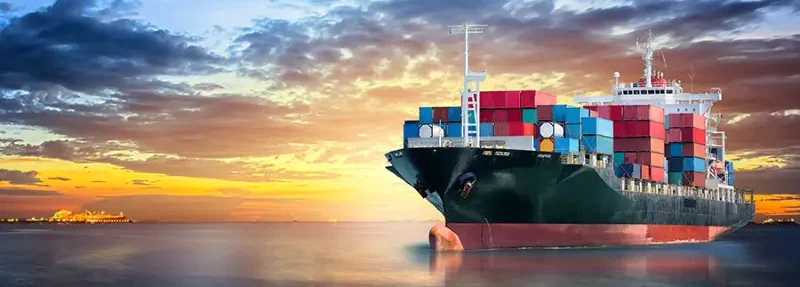Sourcing logistics solutions — Exporter Magazine

The offer came at the right place, at the right time. During a social event at the New Zealand Trade Centre (NZTC) several years ago, Scott Kington, managing director of Madeblunt learnt about the track his company could go down – outsourcing the warehousing and distribution of the company’s umbrellas.He had met Chris Shaw, general manager of Multifreight, a family-owned freight and logistics company, at the NZTC function and soon warmed to the idea of letting the experts handle the company’s warehousing and distribution.Kington says this was the best thing the company did. “Initially we tried to do everything ourselves. That’s a waste of time really. By outsourcing the logistics we can really free our time to do what we do best – to grow the business.”Madeblunt – which exports to the US, UK and Japan, among other countries – does not have its own warehouse or logistics handling – New Zealand orders are taken and distributed by Multifreight.For Multifreight, third party logistics (3PL) is not its core business but was extended as a service to Madeblunt due to the freight relationship it already had.Chris Shaw says that small to medium sized companies often don’t have enough economy of scale to ship or distribute goods efficiently.“Local companies are always struggling to get going. The cost is high for fulfilling small orders. Sending samples or small shipments to develop a market is costly,” he says, adding that often the per-shipment fee for 100kg of goods is not that much more different from sending 2,000kg.Kington says 3PL is a great solution because you don’t have to pay (beyond the cost of storage) until goods have to be picked, packed and sent. He says Madeblunt has a good relationship with its third party logistics company which is based near the airport, making it easy for weekly visits.
The problem with storage
Where do you store your samples while you are getting ready to go to the export market or to exhibit your goods?This was one key headache for Bob Sievwright, founder and co-owner of Tauranga-based Trimax Mowing Systems, back in the early 1990s.Trimax’s problem became the seed for another business idea which has taken off and is currently helping Kiwi exporters meet their logistics and distribution needs.Sievwright started Base3usa – dedicated to helping Kiwi exporters without their own capacity, to fulfil their warehousing, logistics and fulfilment needs. It offers this service in the US.In the early 90s, Sievwright had to ship samples of Trimax’s mowers to California. Trimax mowers are used for large-scale mowing of huge spaces such as turf grass, farms and sports fields, throughout the US.“I faced the problem of: where would I send my initial shipment to?” he recalls. It didn’t help that Trimax mowers were oversized machines that didn’t easily fit in the back of a normal-size truck for dispatch across the continent.Initially, he was lucky enough to have come in contact with an organic almond grower in Hilmar, California, which he was able to use as a base to store Trimax’s products.Eventually Sievwright set up Base3usa to help itself, as well as other Kiwi companies with their warehousing and logistics needs. Based out of Atlanta, Base3 can help an exporter meet their warehousing needs, provide order fulfilment and virtual office services.Base3 managing director Moira Moroney says it’s a choice location as 80 percent of the US population is found on the East Coast.
Finding that perfect match
For exporters looking to find a warehousing and order fulfilment house, it pays to start by assessing the company’s business model to fit a matching service. Selecting a sensible logistics location is paramount in helping a company move goods around in a cost-effective manner. In the US, for instance, many warehouses only handle consumer orders. Others cover only retail orders, while some focus solely on handling bulk loads such as pallets.Warehousing close to market is important. Someone looking to service the grape industry in the US, for example, should store their goods on the West Coast, while the East Coast is a better base for consumer products with nationwide appeal.“Base3usa will ensure goods arriving in warehouse are counted, stored for easy picking and packing; and dispatched immediately there is an order,” Moroney says.For exporters or e-commerce customers ‘visibility’ is everything, he adds. This means a highly functional integrated system between the exporting company and the 3PL supplier which enables the exporter to track orders, keep watch over whether the orders are fulfilled and provide up-to-date information for stock planning.Back home, New Zealand warehouses can’t even begin to match the gargantuan sizes of US warehouses. Although local warehouses are miniscule by comparison, Kiwi freight and distribution companies have achieved a certain level of maturity and capability which local exporters expect to see replicated elsewhere in the world – this according toTim Baxter, country manager for world logistics goliath DHL. Yet that is not easy to find.Cheap is not the answerCompanies seeking 3PL solutions make the most common mistake of going for the ‘cheapest’ option, says Matthew Casbolt, managing director of DHL Supply Chain NZ. These companies may end up paying for poor service, he says, which can lead to loss of market share.To find out what is a reasonable amount to pay for a 3PL service, start by looking at how much it would cost to handle the freight and logistics in-house. “If you have an idea of the cost structure, then you can decide what you want to pay based on the revenue you generate,” Casbolt suggests.Also, think about ‘reverse logistics’ or what happens when your products are returned by customers. Consider the cost of handling the redistribution or reselling, recycling or destruction of returned goods, he says.Some 3PL suppliers offer more than just logistics. DHL, for instance, is able to ‘value add’, meaning it has the ability to relabel products, bundle products, ‘replug’ to meet the New Zealand market requirements, among other services, Casbolt says.
Fees & flexibility
In the labyrinthine world of freight and logistics, there are many facets to consider while picking a 3PL supplier, says Paul Grey, founder of World Wide Access – another company specialising in helping Kiwi exporters distribute goods in offshore markets.Get a good picture of the fee structure by finding how the supplier charges for order fulfilment of handling one unit against handling multiple units, he adds. If a company requires flexibility from its 3PL to deal with small orders such as one or two units, and requires some repackaging, the big warehouses and order fulfilment companies that deal with only moving goods in pallets may not be a suitable supplier.“Also, consider if you are getting your stock out in bulk? Is delivery cost going to be an issue? Does your warehouse supplier give you guaranteed delivery dates?”Grey says many Kiwi companies do not understand how specialised the 3PL suppliers can be outside New Zealand, in very large markets such as the US. Knowing specifics is important, he says.There are warehouses that handle only apparel, or warehouses that accommodate goods coming in at a certain dimension, and if the product’s dimension doesn’t fit, then it goes into another warehouse in another state.“We have had customers experience this in the UK – the (3PL) supplier won’t do individual orders as the warehouse only handles bulk and won’t unpack cartons,” Grey says. “So to fulfil the distribution needs, the company needed to change supplier or find two separate suppliers.”For many Kiwi exporters, using e-commerce is definitely becoming the way of the future. Yet, to succeed in building customer and brand awareness, nothing beats having that physical presence.Moroney from Base3usa says: “Exporters still need to make enough commitment to sales in their respective markets. E-commerce doesn’t create ‘sales’ that traditional sales and distributors do. Kiwi companies still have to spend time in the market to manage the sales process.”
Catching errant milk powder ‘exporters’
You can’t just buy milk powder off the shelves in local supermarkets and try to ‘export’ it to your customers in China. Sometimes it takes a sharp-eyed freight forwarder to turn these culprits away.New Zealand’s Ministry for Primary Industries (formerly Ministry of Agriculture and Forestry) has rules dictating that every dairy product that leaves New Zealand can be traced throughout the exit journey. This means unless you have been licensed as a dairy exporter, your products will be turned away by the forwarding company.Freight forwarding company International Cargo Express (ICE), has had to recently turn away several shippers trying to send milk power to China.Fresh producer manager at ICE, Pino Scully, says every fresh produce or food product that leaves the country goes through a chain of process. “We have had to turn away some shippers because they could not meet regulatory requirements.”Besides ensuring compliance is met, especially for fresh produce, freight forwarders have to ensure they make the right investments to provide the right conditions in the warehousing of the goods destined for export.Peter Furlong, general manager at ICE, says the company has made heavy investments to ensure it can meet compliance requirements and can offer top notch refrigeration technology for chilled and frozen goods.Fresh produce has to be prepared well before it travels. “We have to make sure the product can travel at the optimum temperature so we must spend time getting the product ready for travel,” says Scully.
Strawberries are particularly tricky to handle, says Scully, as they need to be pre-cooled and insulated before heading to the aircraft.
Publishing Information
Magazine Issue
Exporter Magazine Nov/Dec 2012 Issue 26






